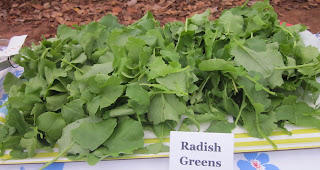The first Stakeholders Farm to School meeting for DeKalb County was held at Fernbank Elementary, Wednesday afternoon, March 23, 2011 at 5pm. The meeting was facilitated by Erin Croom of Georgia Organics, a leader in local Farm to School programs, in conjunction with the Fernbank Wellness PTA. The meeting was attended by 70 parents, teachers, principals, farmers, school nutrition staff, elected officials and local non-profit organizations and businesses. Among the notable attendees were:
Gary Black, Georgia Commissioner of Agriculture
Donna Vella, DeKalb School Nutrition Coordinator
Marina Pilling, DeKalb School Nutrition Manager
Leonard Anderson, 4-H Program Director
Brandi Whitney, DeKalb County Board of Health
Brian Knight, from Casey Cagle, Lt. Governor’s office
State Representative Stephanie Benfield
Future Farmers of America
Heidi Blanck, PhD, Chief of the Obesity Prevention & Control Branch of the Division of Nutrition, Physical Activity and Obesity at the CDC.
The meeting began with an overview of both local and national Farm to School programs and its history. They then heard from Commissioner Gary Black, Representative Stephanie Benfield and Brian Knight from Lt. Governor Casey Cagle’s office. Each elected official talked about how they support farm to school programs and are thrilled that DeKalb County is starting this discussion.
The attendees then broke up into smaller groups to answer questions about the opportunities, challenges and solutions to increasing fresh, local food in the cafeteria as well as nutrition into the curriculum. Attendees were asked to come up with a farm to school vision, both short and long term for DeKalb County.
The Fernbank Wellness PTA will compile the meeting minutes and distribute to the public. Then they will schedule a second Farm to School meeting, hosted by a different school, to follow up with the results of the meeting.






